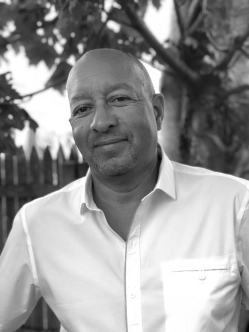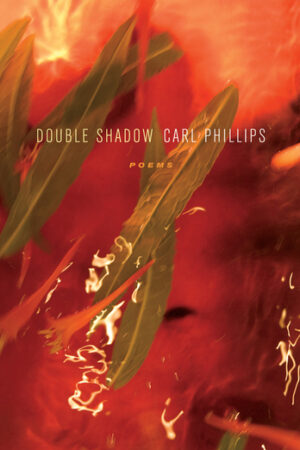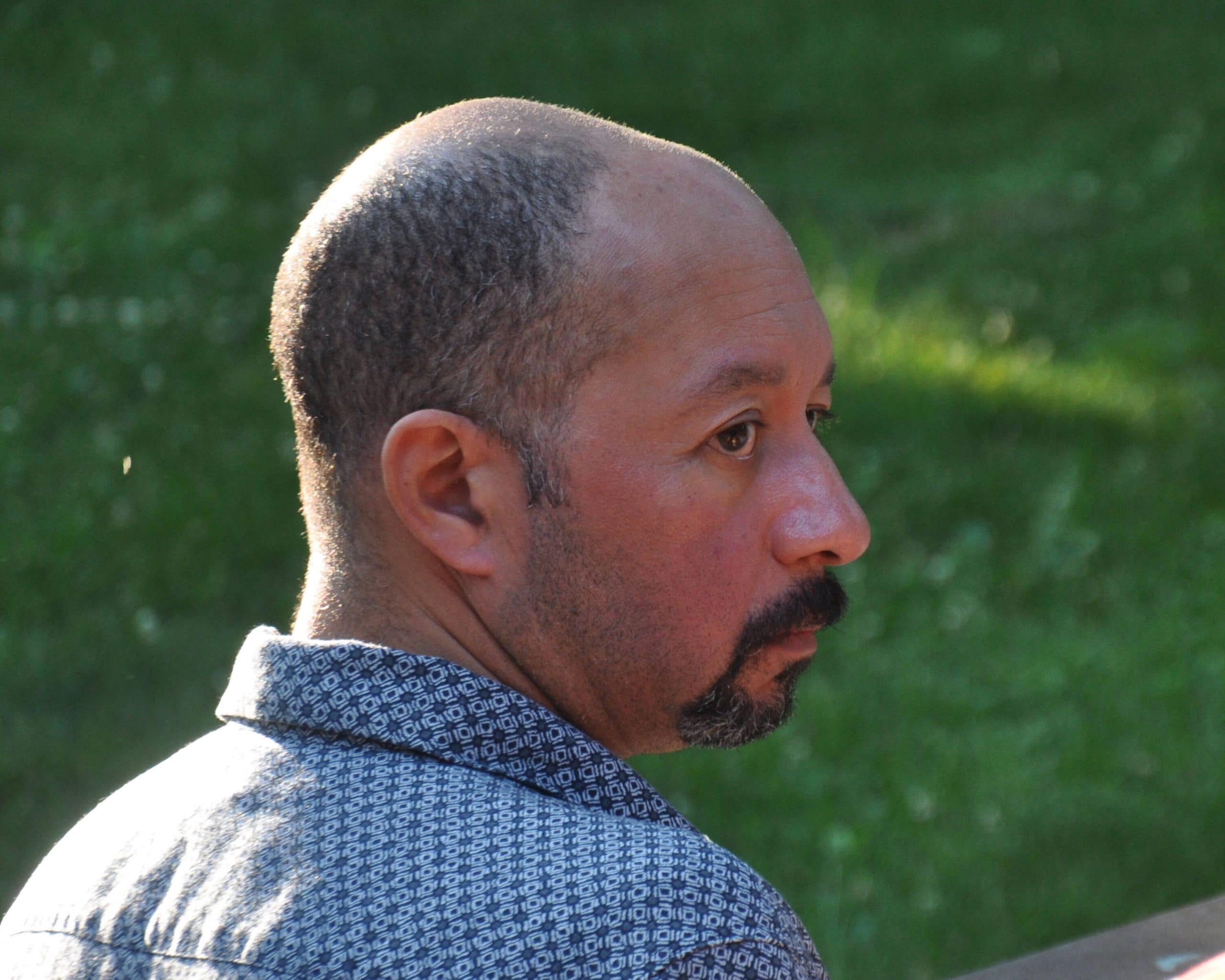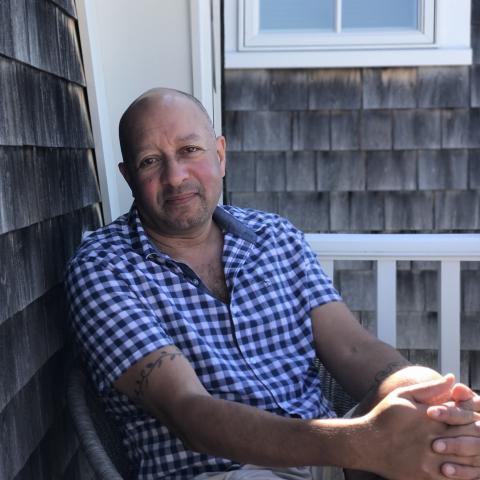
Steeple
Maybe love really does mean the submission of power—
I don’t know. Like pears on a branch, a shaking branch,
in sunlight, 4 o’clock sunlight, all the ways we do harm,
or refrain from it, when nothing says we have to.... Shining,
everyone shining like that, as if reality itself depended
on a nakedness as naked as naked gets; on a faith in each
other as mistaken as mistaken tends to be, though I have
loved the mistake of it—still do; even now—as I love
the sluggishness with which, like ceremony or, not much
different, any man who, having seen himself at last,
turns at first away—has to—the folded black and copper
wings of history begin their deep unfolding, the bird itself,
shuddering, lifts up into the half-wind that comes after—
higher—soon desire will resemble most that smaller thing,
late affection, then the memory of it; and then nothing at all.




